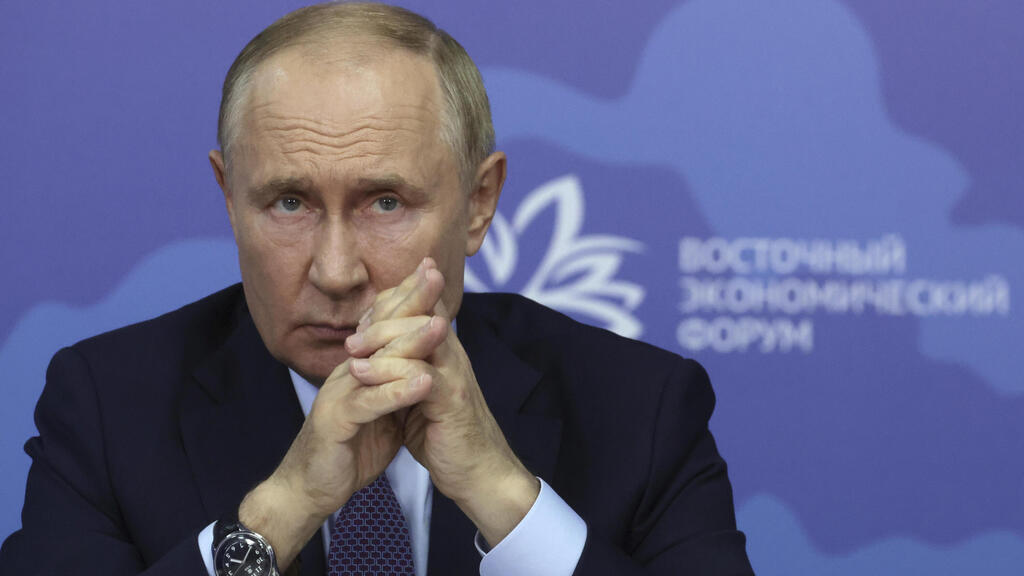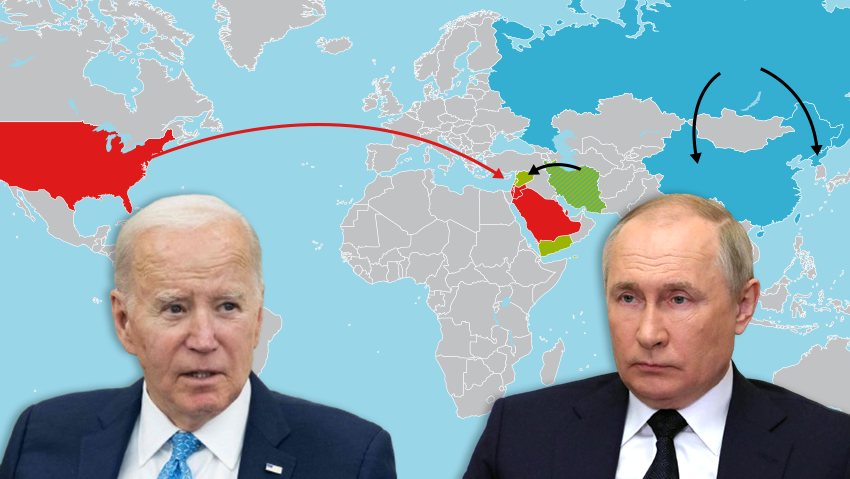Getting your Trinity Audio player ready...
Russia has been walking a fine line between undermining U.S. strength in the Middle East and sidestepping commitment in the region – in a bid to avoid wider conflagration in the region.
Moscow has shown little interest in U.S. diplomacy to achieve calm and stability, but it also does not want a regional conflagration. Such an escalation may well also complicate Russia’s relationships with Iran and the Gulf Arab states. It is much easier for Russia to maintain Gulf state relationships when the region is harmonious and conflict-free, rather than engaging in a perilous zero-sum game.
Ultimately, Russia is more likely to support Iran or Hezbollah through electronic warfare or by funneling weapons to its partners that are not needed for the Ukraine campaign than to actually engage militarily in the Middle East directly.
Mounting Iran-Israel tensions could divert attention from Ukraine-Russia war
Increasing tensions between Iran and Israel might benefit Moscow by diverting Washington’s focus and resources from Ukraine, where Russia is currently active. However, a broader war in the Middle East poses risks for Russia. It could involve Syria, weaken Iran's ability to supply Russia with weapons, and complicate Russia’s relations with Gulf Arab states and Iran. Additionally, any significant conflict could strain Iran’s defense industry.
Since the 2022 Ukraine invasion, Moscow and Tehran have expanded their military cooperation, with Russia receiving Iranian drones, artillery, ammunition, and glide bombs. However, the volume of these supplies is limited by the ongoing conflict in Ukraine.
The July assassination of Hamas leader Ismail Haniyeh in Tehran has put Iran in a difficult position, needing to balance internal and regional pressures without escalating into a war with Israel. This has further strained Russia’s relations with Israel. In response, Russia has focused on smaller diplomatic objectives, such as negotiating with Hamas to secure the release of Russian hostages.
Russian Security Council Secretary Sergei Shoigu's visit to Iran in August aimed to strengthen bilateral relations and address regional and international issues. Despite its military cooperation with Iran, Russia is unlikely to escalate the conflict in the Middle East. Both Washington and Moscow prefer to avoid a regional conflagration, as their primary focus remains the Ukraine crisis.
Russia’s involvement in the Middle East is part of a broader strategy to secure its position in the Arab world and distract the West from Eastern Europe. While Moscow is not interested in Western-led diplomacy for stability, it also seeks to avoid a Middle Eastern conflict that could further complicate its strategic interests.



